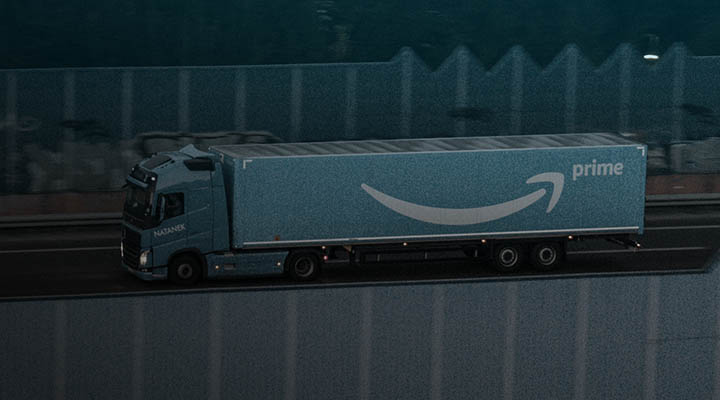In the current market, Sainsbury’s didn’t strike me as an organisation who were prepared to be this bold and spectacular. But, I should have known better, as Mike Coupe has now overseen two game-changing mergers in recent times.
Like a lot of people, I was surprised to read that Mike Coupe and Sainsbury’s had made a move for Asda. There I was, enjoying a week of rest, a few beers and playing with my son, and the biggest retail news of 2018 had passed me by. Needless to say, Mrs G. took great delight in the fact that she had heard about the merger before I had (though I attribute this more to her mobile news feed addiction rather than her interest in all things retail). But it struck me as bold.
And in the current market, Sainsbury’s didn’t strike me as an organisation who were prepared to be this bold and spectacular. But, I should have known better, as Mike Coupe has now overseen two game-changing mergers in recent times.
Will ASDA add Value?
The first, buying Argos, in my opinion, was a no brainer. They added branches to help offer further customer value via additional fulfilment options, but the ecommerce business and its abilities were, and will prove to be, a steal.
But Asda? So there’s the usual figures we can use to justify the move – 2,800 stores, £51bn of sales, a workforce of over 300,000 and knocking Tesco off the top spot as the UK’s largest retailer… but the more I think about, the more that this feels like the move of a company acting from a position of weakness rather than strength.
And that weakness is motivated by the knowledge that the UK consumer is increasingly searching for value, an area where Sainsbury’s have been struggling due to their inability to offer the same level of discounting as Tesco. And that’s without taking into account what Booker, the newly Tesco acquired wholesaler, can bring to the table. That’s why Coupe has been quick to stress that the new group’s enhanced buying power will enable them to offer 10 per cent price cuts. This economy of scale is vital to any grocer. It may bring them closer to Tesco, but it’s still not the sort of reduction necessary to match the German discounters - Aldi and Lidl - both of whom have been making gains against Sainsbury’s quarter on quarter.
Beware of the Big Bad Wolf...
And then there’s the Competition and Markets Authority. Coupe clearly believes that the merger will be cleared by the CMA and he’ll have already accepted and planned for some enforced store sales.
However, looking at the facts, it’s apparent that closures become a major headache for Coupe. Kantar have reported that two in five of Asda’s largest stores are within five minutes’ drive of a Sainsbury’s supermarket and, in addition to this, that 9 million households have shopped at both chains in the past quarter. It’s possible that the CMA could order far more radical disposals than Coupe has anticipated, but regardless of what the final figure actually is, there’s still bound to be overlap between the remaining, competing stores.
Another question arises concerning what to do with the two brands. Coupe is doggedly maintaining the two will still exist. In theory, fine, as Sainsbury’s is more upmarket of Asda, but that’s forgetting that they share a congested and highly competitive middle ground. I’m struggling to envisage where the benefit lies for a single owner in having these two compete against each other to sell the same goods bought by the same group of buyers to the same customers. At the very least it will not make for a happy management ship.
So, what's this based on?
The whole merger, to me, has been driven by two factors.
The first is that the CMA cleared the Tesco/Booker union. But are the CMA likely to be influenced by the argument that something must be granted purely because it was granted previously? It’s likely that Sainsbury’s will argue that the earlier deal also saw a boost in buying muscle for Tesco, the key differentiator here is that the Tesco/Booker merger did not restrict the choice for the consumer.
It was not a vertical takeover in the same market, but a horizontal one, comprising one company in one market purchasing another in a quite different field – a B2C retailer acquiring a B2B wholesaler. All that was affected was Tesco’s pricing, not the number of stores.
And the second? There’s no doubt the catalyst for the merger is Tesco’s purchase of Booker. But the galvanising influence on that deal was Amazon, as it is in Sainsbury’s swoop on Asda. And remember, this is before Amazon has even made its presence felt within the UK grocery sector.
But that’s the point.
Amazon is coming, and the current Big 4 UK grocers are petrified. Sainsbury’s will say the US online behemoth is not a factor – and it isn’t, in the sense this is about two UK grocers getting together – but it’s not far from their minds. The fact is, this may create a major force in UK retailing, but compared with Amazon it’s a minnow. And when the time is right, Amazon can have the pick of the bunch – and that includes Sainsbury-Asda.
Published
April 29, 2024Reading time
3 minutesRelated posts





